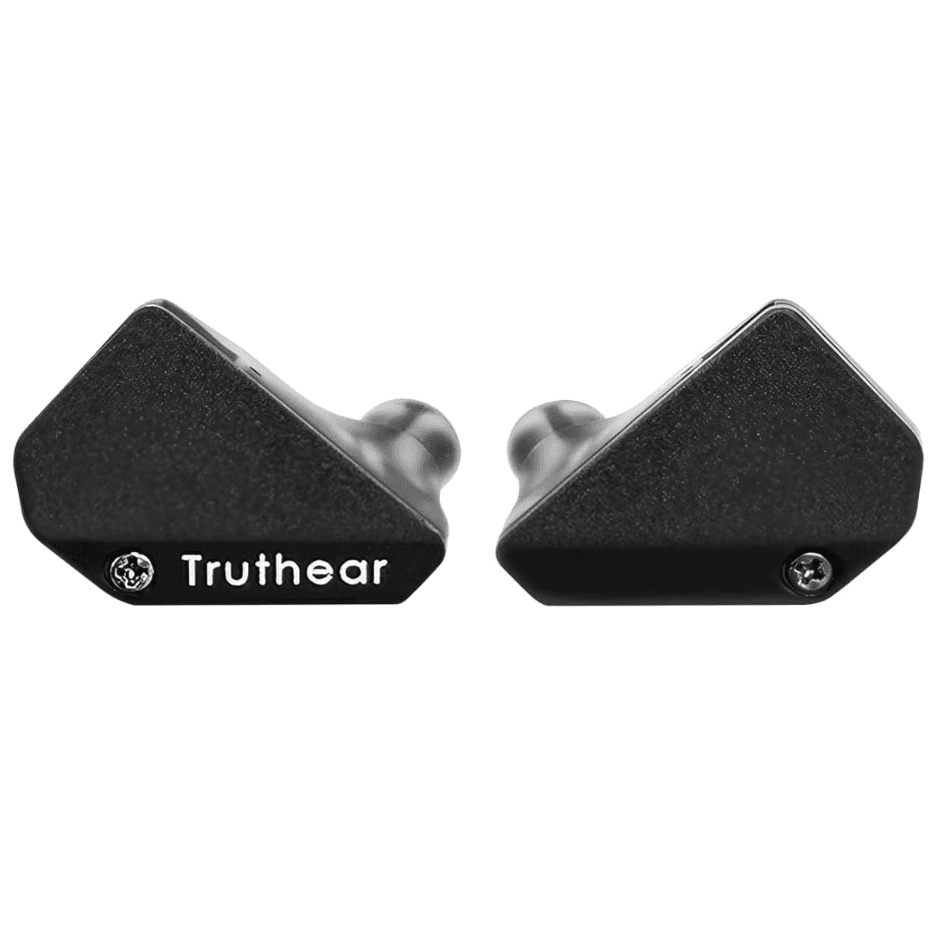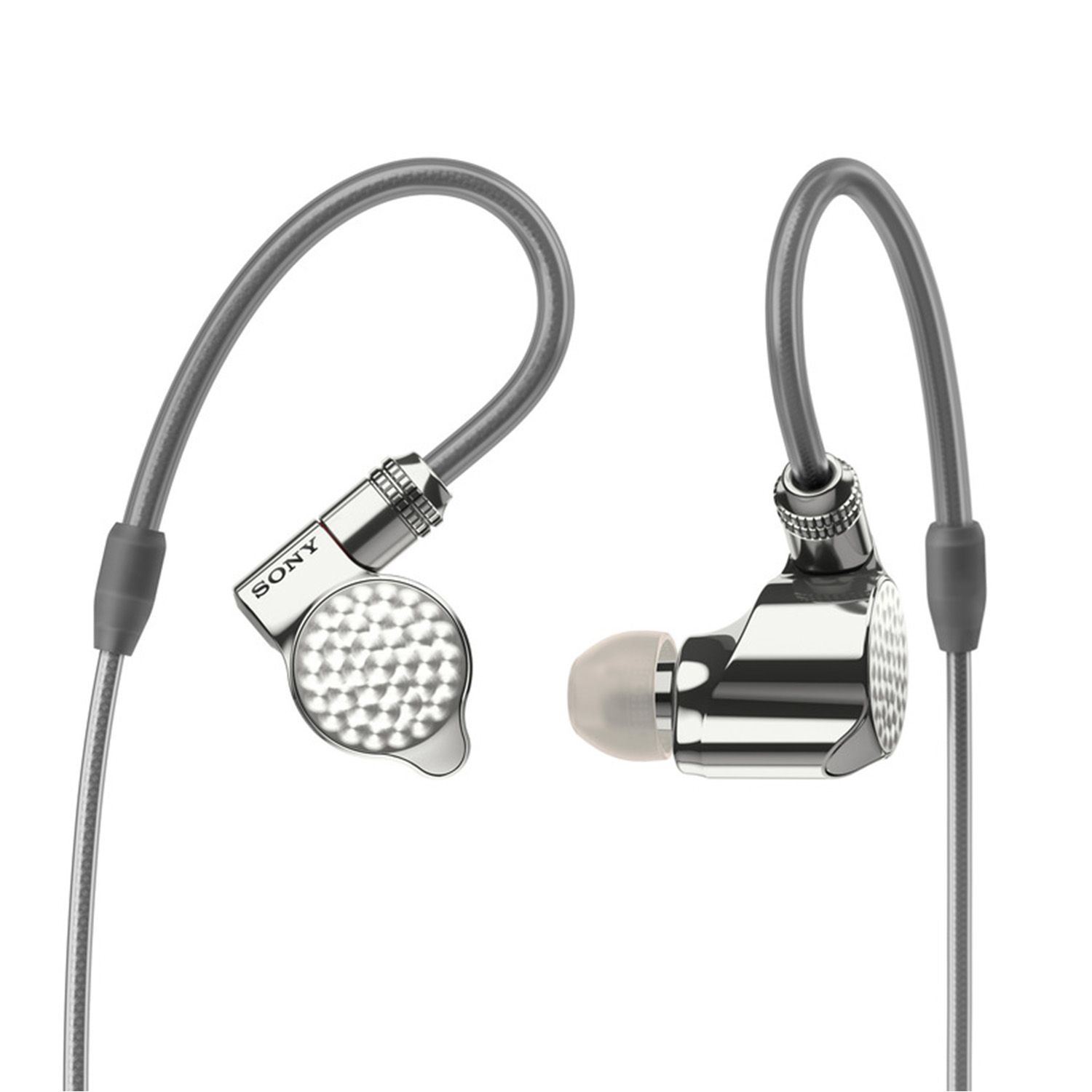Hexavs.IER-Z1R
Sound & Specs Comparison
Information
Both IEMs are widely regarded in the audiophile community. See how they differ in terms of sub-bass response, upper mids, clarity, and overall tonality. Spider charts and rating breakdowns included.
Objective Comparison
Facts, details, stuff.
| General Info | Hexa | IER-Z1R |
|---|---|---|
| Brand | Truthear | Sony |
| Country | China | – |
| IEM Description | HEXA is a high-performance hybrid IEM featuring one 10mm dynamic driver and three balanced armature drivers for a clean, balanced sound. Designed with a DLP-3D printed resin cavity and metal faceplate, it combines precision engineering with comfort. The bass is deep and punchy, the mids are clean and natural, and the highs are smooth and detailed. Its medical-grade shell, reliable build, and premium silver-plated cable make HEXA a standout in its class—offering refined audio performance at an accessible price point. | Despite their small size, the Sony IER-Z1R earphones feature a sophisticated 3-way design with two dynamic drivers and a highly precise balanced armature. The sound quality is not just high-resolution—it's ultra-high-resolution, reaching an impressive frequency response of up to 100 kHz. Housed in a precisely crafted, virtually resonance-free aluminum shell, the design ensures that all three drivers remain in perfect phase alignment. The cables are fully balanced and made from high-purity OFC copper with silver plating for maximum detail retrieval. |
| Price Level | < 100 | 2.000 + |
| Housing & Driver | ||
|---|---|---|
| Driver Config | Hybrid | Hybrid |
| Driver Types | Balanced Armature + Dynamic Driver | Dynamic Driver + Balanced Armature |
| Shell Material | – | – |
| Cable | Four Stands of High-quality Silver-plated Cable | – |
| Technical | ||
|---|---|---|
| Freq Range | 8-40kHz (IEC61094, Free Field) | 3-100.000 Hz |
| Impedance (Ω) | 20.5 | – |
| Sensitivity (dB) | 120 | 103 |
| Crossover | – | – |
| Platform Info | ||
|---|---|---|
| Comments | 0 | 0 |
| Visit Count | 95 | 97 |
| External Reviews | 1 | 1 |
Meta Ratings
Sound-wise, IER-Z1R provides a noticeably more refined presentation, with improved detail retrieval, microdynamics, and instrument layering when compared to Hexa (9.8 vs 8.5). Craftsmanship-wise, It feels distinctly more meticulously assembled, reflecting a level of engineering and attention to detail that elevates the product. Cable-wise, It is materially better built, featuring sturdier connectors and less tangling — traits where Hexa falls slightly short. Accessory-wise, It includes substantially more practical and high-quality items, enhancing both protection and usability.
| Hexa | IER-Z1R | |
|---|---|---|
| Sound | 8.5 | 9.8 |
| Comfort Fit | 7.2 | 6.8 |
| Build Quality | 7.7 | 9.8 |
| Stock Cable | 5.3 | 8.5 |
| Accessories | 5.0 | 8.3 |
Sound Characteristics
The low-end on IER-Z1R is m more controlled and rhythmic, offering better definition than Hexa (9 vs 7.5). The bass in It feels a more physical and textured, with improved rumble and body compared to Hexa (9 vs 6.5). It achieves c better warmth and coherence in the lower mids, bringing more realism to guitars and cellos (8.5 vs 7.5). Upper mids are a more resolving and expressive on It, revealing emotion and articulation better than Hexa (8.5 vs 7.5). The treble on It is s more nuanced and refined, especially when it comes to cymbals and ambient elements (9 vs 8.5). It extends n further into the upper treble, adding air and openness that Hexa lacks (9.5 vs 8.5). It paints a overwhelmingly broader sonic landscape, offering better instrument positioning across the stage (10 vs 5.5). With a higher resolution, It allows finer textures and room ambiance to shine more than Hexa (9.5 vs 8.2). Track elements feel a more isolated and clean on It, offering clearer focus than Hexa (9.5 vs 8.5). It shows s better control of masking effects, maintaining clarity across frequency ranges better than Hexa (9 vs 6). It adds a more body and density to musical notes, enriching the overall texture compared to Hexa (9 vs 6). Percussion and quick attacks feel overwhelmingly more physical and punchy on It, adding excitement over Hexa (9 vs 3.5). The upper range of vocals is a cleaner and more forgiving on Hexa, helping it avoid sibilant harshness that IER-Z1R shows (10 vs 9.5). IER-Z1R renders timbres with a better harmonic balance, preserving the character of instruments more accurately than Hexa (9.5 vs 8.5). Hexa portrays textures in vocals and strings with a more realism, enhancing emotional depth over IER-Z1R (10 vs 9).
| Hexa | IER-Z1R | |
|---|---|---|
| Sub Bass | 9.0 | 9.0 |
| Bass | 7.5 | 9.0 |
| Bass Feel | 6.5 | 9.0 |
| Lower Mids | 7.5 | 8.5 |
| Upper Mids | 7.5 | 8.5 |
| Lower Treble | 8.5 | 9.0 |
| Upper Treble | 8.5 | 9.5 |
| Sound Stage Width | 5.5 | 10.0 |
| Detail | 7.5 | 9.5 |
| Layering | 8.5 | 9.5 |
| Masking | 6.0 | 9.0 |
| Note Weight | 6.0 | 9.0 |
| Slam | 3.5 | 9.0 |
| Sibilance | 10.0 | 9.5 |
| Timbre Color | 8.5 | 9.5 |
| Tonality | 9.0 | 9.0 |
| Texture | 10.0 | 9.0 |
Tonal Signature
// Nothing to compare yet.

